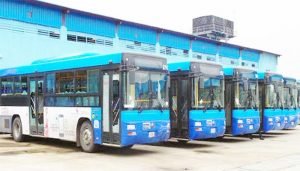
By David Akinmola
Nigeria is losing an estimated $1 billion annually to foreign aircraft maintenance as its airlines continue to rely on overseas facilities—a trend experts say is draining scarce foreign exchange and stunting the local aviation industry.
Former Rector of the Nigeria College of Aviation Technology (NCAT), Capt. Samuel Caulcrick, has urged the Nigeria Civil Aviation Authority (NCAA) to spearhead a policy overhaul that would attract private investment into local Maintenance, Repair and Overhaul (MRO) infrastructure.
Speaking with The Guardian yesterday, Caulcrick described the absence of a viable domestic MRO ecosystem as one of the most critical gaps in Nigeria’s aviation value chain. He argued that a deliberate regulatory push from the NCAA could unlock billions in savings, create skilled jobs, and position Nigeria as a regional maintenance hub.
“We are losing huge sums every year to foreign MROs for aircraft checks that can be done here,” he said. “If the NCAA enforces the requirement for local MRO partnerships as part of airlines’ Air Operator Certificate renewals, it would compel investment in homegrown capacity.”
Despite operating almost entirely within Nigeria, most domestic airlines still conduct heavy maintenance—C and D checks—abroad, mainly in Europe, the Middle East, and Ethiopia. This dependence exposes operators to exchange rate pressures and long aircraft downtimes.
Caulcrick noted that local MRO development would not only stem foreign exchange losses but also enhance operational efficiency.
“Airlines would no longer need to spend in dollars for the man-hour component of maintenance, which has become extremely expensive due to naira volatility,” he explained. “A strong local MRO sector can attract foreign airlines and generate new revenue streams for Nigeria.”
Industry data shows that Nigerian carriers spend about $1 billion annually on offshore maintenance. Air Peace Chairman Dr. Allen Onyema recently disclosed that his airline alone spent ₦180 billion in 2024 maintaining its fleet abroad.
Caulcrick stressed that for the NCAA’s intervention to yield results, government must deliberately create an enabling environment for investors.
“Building MROs is capital-intensive. Government should provide incentives—such as tax breaks, land grants, and financing support—to investors ready to develop the infrastructure,” he said.
He added that Nigeria’s lack of modern equipment and persistent brain drain among skilled engineers have worsened the challenge, as many trained technicians are hired by foreign firms offering better pay and work conditions.
The former NCAT boss maintained that a functional local MRO industry would yield multiple economic benefits, including technology transfer, faster aircraft turnaround, and enhanced safety oversight.
“With a strong maintenance base, Nigeria can stop exporting jobs and start exporting technical expertise,” he said. “It’s a strategic step toward long-term sustainability and competitiveness for our aviation sector.”







